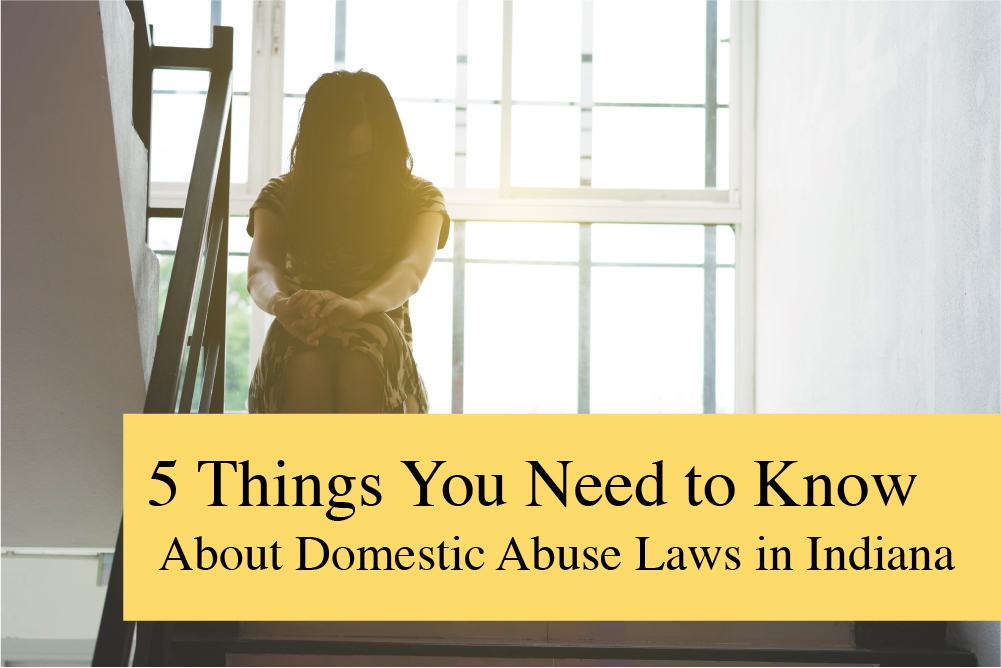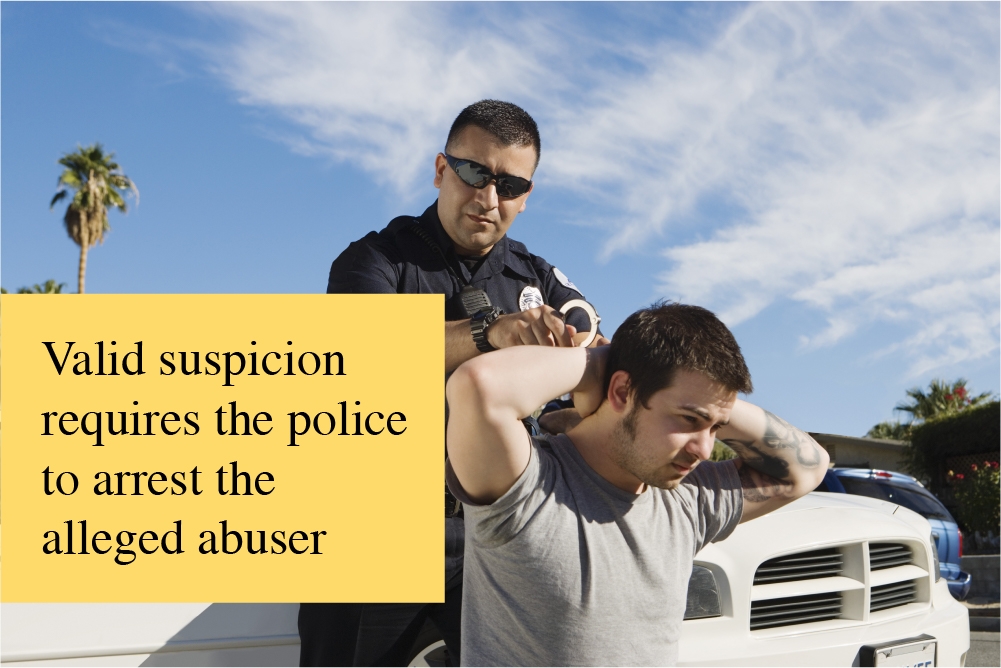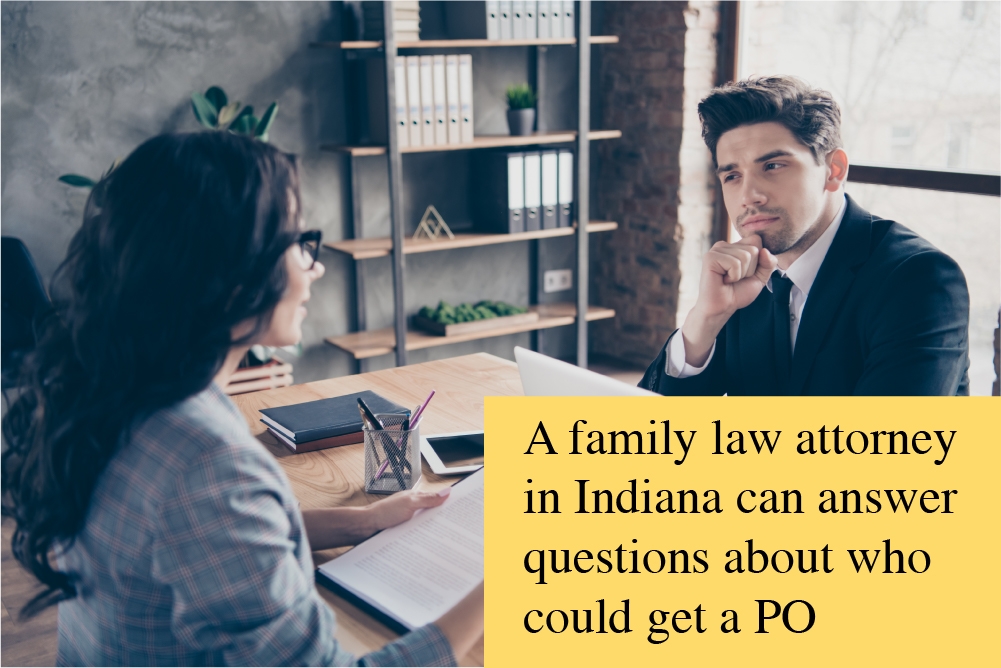5 Things You Need to Know About Domestic Abuse Laws in Indiana

Domestic Abuse Laws In Indiana
A family lawyer will inevitably work with clients who have suffered domestic abuse. Violence between intimate partners complicates legal issues during a divorce or separation. The criminal court could be involved, and extra attention must be given to protecting a victim and children if present. Fortunately, Indiana law provides legal tools designed to halt the abuse and promote safety for families.
1. Definition of Domestic Violence in Indiana
Crimes earn the label of domestic violence when the people involved are intimate partners. An intimate partner could be a:
- Spouse or ex-spouse
- Cohabitating romantic partner
- A person who shares parentage of a child

The crime can take many forms, including:
- Stalking
- Intimidation
- Confinement
- Invasion of privacy
- Harassment
- Residential entry and trespass
- Strangulation
The specific offense of domestic battery, as outlined in Indiana Code, Title 35, Article 42, Chapter 2, includes intimate partners and other family or household members, such as:
- Blood relations
- Adopted relations
- In-laws
- Current or former guardians, wards, custodians, or foster parents
Domestic battery arises when a person knowingly or intentionally touches a family or household member in anger or a rude manner. A battery may also occur when someone angrily puts bodily fluids or waste on a family or household member.
2. Domestic Abuse Criminal Charges and Penalties
The severity of the battery or other violent acts determines the seriousness of the criminal charge. The criminal justice system has the option to treat a domestic battery as anything from a Class A misdemeanor to a felony. A family lawyer representing a divorce or child custody case involving domestic abuse could cite the severity and frequency of attacks to promote a client’s needs.
A prosecutor would likely charge an incident that does not result in bodily injury as a Class A misdemeanor. However, the lack of bodily injury does not mean that force and pain are absent. A victim might suffer actions such as slapping, shoving, or pulling hair.
A conviction for misdemeanor domestic battery produces a sentence of up to 1 year in prison and a fine as high as $5,000.
A felony charge becomes appropriate when the accused person:
- Had one or more previous domestic violence convictions
- Attacked in the presence of a child
- Caused moderate or severe bodily injury
- Violated a protection order
- Used a deadly weapon
- Targeted a vulnerable person, such as a minor under age 14 or pregnant or disabled person
- Threatened, attacked, or killed a pet or livestock
A felony sentence could include a fine of up to $10,000 and prison terms based on the felony level:
- Level 6 – between 6 months and 3 years in prison
- Level 5 – between 1 to 6 years
- Level 4 – between 2 to 12 years
- Level 3 – between 3 to 16 years
- Level 2 – between 10 to 30 years
3. Law Enforcement’s Role
Police officers and deputies routinely respond to domestic disturbance calls and should be trained to deal with domestic violence. They do not have to see the domestic abuse take place to bring a suspect into custody, and an officer’s suspicion about the accused will suffice even without injuries. In fact, valid suspicion requires the police to arrest the alleged abuser.

Typical release conditions for domestic abuse are:
- No contact with the victim
- Drug or alcohol monitoring
- Anger management classes
Due to the vulnerability of domestic abuse victims, the law further obligates law enforcement officers to take any reasonable steps to halt the violence and help a victim reach safety.
To this end, they may:
- Ensure a victim can gather personal effects
- Transport a victim and children to stay with a trusted individual or meet a domestic violence counselor
Should the arrest ultimately result in a conviction for domestic battery or other domestic violence crimes, like stalking or harassment, Indiana may prohibit the individual’s ability to possess firearms.
4. Protective Order Procedures
A protective order (PO) comes from a civil court, and the filing of criminal charges will trigger the associated civil court to provide a PO automatically. In the absence of criminal charges, a victim must petition a civil court and request the issuance of a PO against the abuser. In this process, the victim is known as the petitioner and the abuser as the respondent. Although courts strive to make it easy for people to petition for a PO, victims sometimes work with a family lawyer. They typically need advice about legal issues related to ending a relationship.

A family law attorney in Indiana can answer questions about who could get a PO. To succeed in securing a PO from a court, a person must:
- Be a victim of domestic or sexual violence
- Currently fear attack or harassment
- Know the address and identifying details of the abuser
Upon filing the petition, a judge who deems the danger valid creates an ex parte order immediately. At this point, the petitioner or the respondent may request a hearing that must be scheduled within 30 days. Other issues, such as possible eviction, may prompt the court to hold a hearing anyway.
To prepare for this hearing, a person could ask a family attorney to present evidence. At times, a case may involve extensive evidence, including witness testimony and medical records.
A PO prohibits:
- Contact, in person and by postal mail or any electronic means, including social media
- Entering the petitioner’s home, other property, or workplace
- Harassment
- Threats
- Stalking
Additionally, a PO could potentially order the eviction of an abuser from the family home and require payment of child or spousal support.
When a judge approves a PO, the court distributes copies of the order to the petitioner, respondent, and local law enforcement agencies. A PO remains in effect for 2 years unless otherwise specified by the court.
5. Safety Tips After Leaving an Abusive Relationship
In the United States, 20% of homicide victims die at the hands of intimate partners. The act of leaving an abusive intimate partner heightens the danger of fatal attacks. A family lawyer aiding someone in the process of ending the relationship may advise:
- Changing phone number
- Closing any shared bank accounts or credit cards
- Saving all documents related to threats and injuries
- Changing locks
- Carrying PO at all times
- Reporting all PO violations to police every time
- Informing schools, employers, and daycares about the PO
Rebuild Your Life After Domestic Abuse
Modern laws enable people to end abusive intimate relationships and penalize domestic abusers. A family attorney in Westfield at Webster & Garino, LLC can evaluate your situation and recommend the next steps as you navigate the emotional, financial, and parental issues that revolve around domestic violence cases. To meet with a family attorney, call 317-565-1818 or email our office today.

